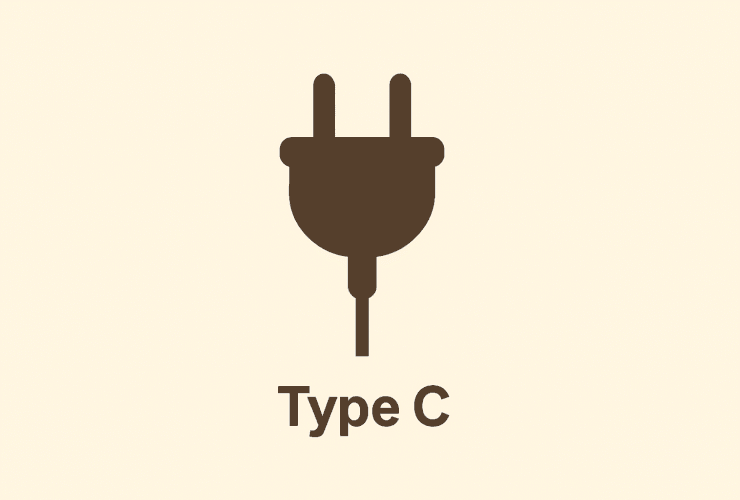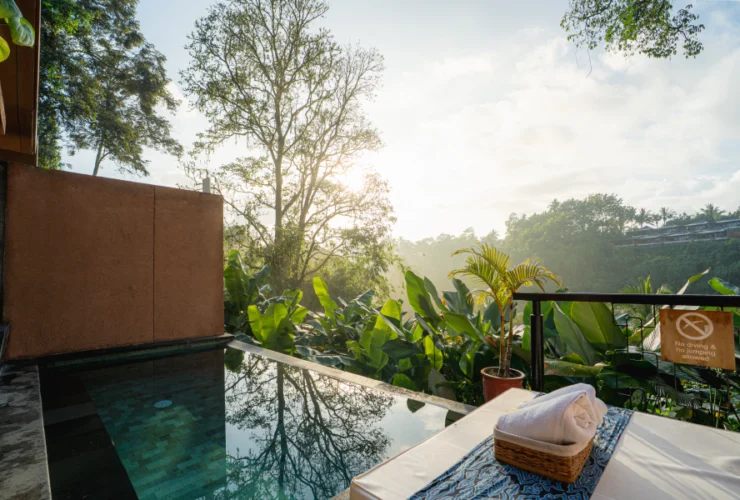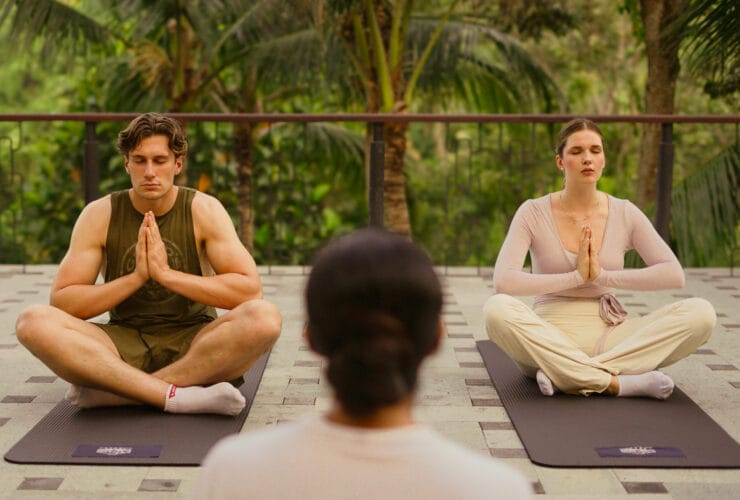Journal
Purnama: Celebrating the Significance of the Full Moon in Culture, Religion and Tradition – and How It Comes Alive at Amora Ubud
Purnama: Celebrating the Significance of the Full Moon in Culture, Religion, and Tradition – and How It Comes Alive at Amora Ubud
The full moon, known as Purnama in Balinese and Sanskrit, holds a profound place in human history. Its glowing light has symbolized everything from divine energy to natural renewal. Across civilizations, the full moon has marked moments of clarity, ritual, and reflection. In Bali, Purnama is not only an astronomical event, it is a deeply spiritual moment, rooted in ceremony and community.
At Amora Ubud, a boutique retreat nestled above the sacred Campuhan Ridge, the essence of Purnama is celebrated with heart, heritage, and harmony. Amora Ubud invites guests to experience this timeless tradition through its Full Moon Culture Dinner, a meaningful evening where ancient rituals meet modern hospitality.
The Cultural Significance of Purnama
Historical Perspectives
For centuries, cultures across the world have looked to the full moon as a celestial guide. Ancient Egyptians aligned temple rituals with lunar phases. In Vedic traditions, the full moon (Purnima) represents the completion of a sacred lunar cycle, a time for prayer, stillness, and divine connection. Indigenous tribes from the Americas to Asia used the full moon to signal harvests, migrations, and spiritual rites.
In Bali, Purnama is a sacred event observed by Hindus through prayer offerings (banten), temple visits, and family gatherings. Every full moon is seen as a day of blessing, a time when divine energy is said to be at its peak, and the veil between the physical and spiritual worlds becomes thin.
Purnama Rituals in Bali
During Purnama, Balinese families prepare intricate offerings, dress in traditional white clothing, and walk to temples carrying baskets of flowers, food, and incense. These offerings are placed under the light of the moon as a form of gratitude and devotion. Dances are performed. Bells are rung. And prayers rise into the night sky, connecting the people to the cosmos.
At Amora Ubud, this sacred energy is channeled into a carefully curated dining and cultural experience, honoring tradition while welcoming travelers into the heart of Balinese spirituality.
Full Moon Culture Dinner at Amora Ubud

In celebration of Purnama, Amora Ubud will host a Full Moon Culture Dinner, a ceremonial gathering featuring:
- Traditional Balinese Dance Performances under the open sky
- Multi-course Dinner Menu inspired by ancestral flavors and seasonal ingredients
- Sacred Ambience with floral décor, incense, and symbolic rituals
Set at Birdhill Restaurant, perched above the lush Bangkiang Sidem valley, the evening offers an immersive experience, where guests dine beneath the full moon, embraced by nature and Balinese culture.
The Spiritual Meaning Behind the Full Moon
Beyond its cultural beauty, the full moon is seen as a time of spiritual magnification, when intentions, emotions, and clarity rise to the surface. In many Eastern traditions, meditating or fasting during Purnama is believed to increase inner awareness and invite divine grace.
At Amora Ubud, guests are invited to slow down, breathe deeply, and let the energy of the full moon restore balance to their lives.
Ways to Honor the Full Moon During Your Stay:
- Participate in a yoga session
- Reflect with a journal or intention-setting ritual
- Soak in your private villa’s bath under the moonlight
Why Celebrate Purnama at Amora Ubud
- Location of Spirit: Amora sits on sacred land along the Campuhan Ridge, a path long revered for its healing energy
- Intimate Atmosphere: With only a limited number of villas, the experience feels personal, serene, and meaningful
- Cultural Connection: The Full Moon Dinner isn’t entertainment, it’s participation. A respectful invitation into something timeless
- Stunning Setting: Jungle views, moonlight skies, candlelit tables, all curated to enhance stillness and sacredness
Conclusion
The full moon, or Purnama, is more than a phase in the sky. It is a mirror of wholeness, a rhythm that connects all beings to the flow of time and spirit. In Bali, Purnama is a call to honor life’s cycles with gratitude and grace.
At Amora Ubud, that tradition lives on, not just in temples, but in every carefully placed flower, every sound of the gamelan, and every dish served under the moonlight.




